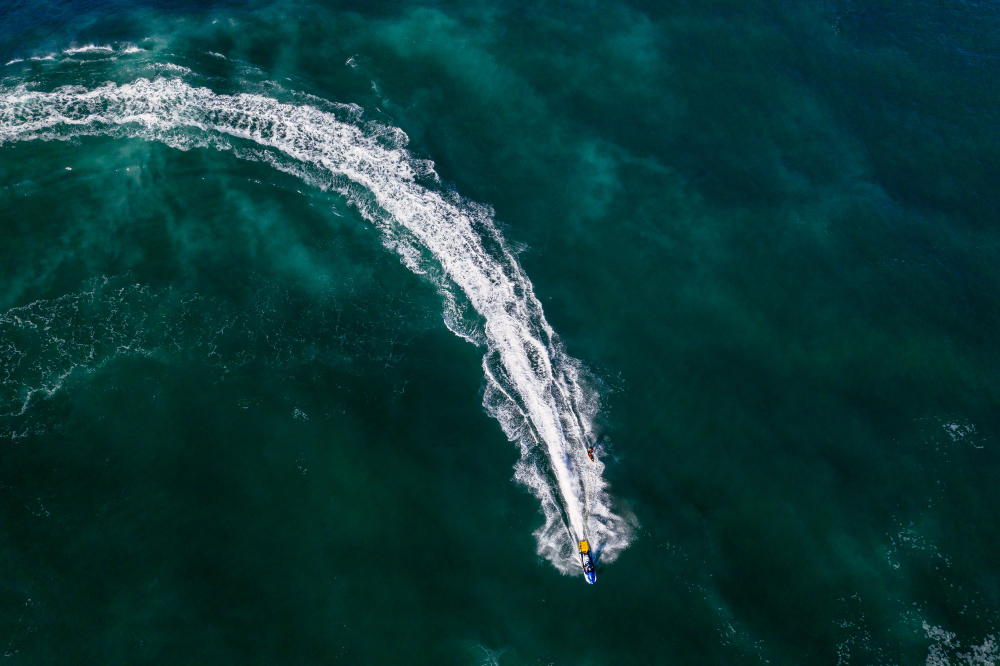Understanding Boat Certification for Offshore Performance Boats

Navigating the vast open waters with offshore performance boats can be an exhilarating experience. However, before you power through the waves at top speeds, it's crucial to understand the certification process these vessels undergo to ensure safety, performance, and compliance with legal standards.
In this comprehensive guide, we'll explore the ins and outs of boat certification, focusing on the requirements for offshore performance boats. Whether you're a seasoned sailor or a boating enthusiast looking to make an informed purchase, this article will equip you with the knowledge needed to make the best decision for your needs.
Why Boat Certification Matters
Boat certification serves as a testament to the vessel's seaworthiness, safety, and regulatory adherence. It ensures that an offshore performance boat meets specific standards set by maritime authorities, which helps safeguard lives and property at sea. Certification also influences insurance policies and resale values, making it a critical factor for any boat owner or buyer.
Key Benefits of Boat Certification:
- Safety Assurance: Certified boats have passed rigorous safety checks.
- Legal Compliance: Ensures adherence to local, national, and international regulations.
- Better Resale Value: Certified boats are more attractive to potential buyers.
- Insurance Benefits: Easier to insure due to proven safety standards.
Understanding Offshore Performance Boats
Before we dive into the specifics of certification, it's important to understand what defines an offshore performance boat. These high-powered vessels are designed for speed and agility, capable of handling rough seas and long-distance travel. They are engineered for performance, often featuring advanced materials and cutting-edge technology.
Characteristics of Offshore Performance Boats:
- High-Speed Capabilities: Designed for racing and high-speed cruising.
- Superior Hull Design: Built to withstand challenging offshore conditions.
- Advanced Technology: Equipped with state-of-the-art navigation and safety systems.
Certification Bodies and Standards
Various organizations issue certifications based on specific criteria. Understanding these bodies and their standards will help you identify which certifications are essential for offshore performance boats.
Major Certification Bodies:
- American Boat and Yacht Council (ABYC): A leading organization that sets safety and construction standards in the U.S.
- International Organization for Standardization (ISO): Offers standards recognized globally, ensuring international compliance.
- National Marine Manufacturers Association (NMMA): Provides a certification program based on ABYC standards.
Key Certification Standards:
- Hull Structure and Integrity: Ensures the boat can withstand pressure and impact.
- Safety Equipment: Includes life jackets, flares, and first aid kits.
- Electrical Systems: Must meet safety standards to prevent fires and electrical failures.
- Fuel Systems: Designed to minimize leaks and fire hazards.
The Certification Process
The process of certifying an offshore performance boat involves several steps, each aimed at verifying different aspects of the vessel's construction and performance.
Steps in Certification:
- Initial Inspection: A thorough examination of the boat's design and manufacturing processes.
- Testing and Trials: Conducting sea trials to test the boat's performance and handling in real-world conditions.
- Documentation Review: Ensuring all legal and technical documents are in order.
- Final Certification: Issuance of certification upon successful completion of inspections and tests.
What to Look for When Buying an Offshore Performance Boat
When searching for offshore performance boats, certification should be a top priority. However, there are other factors to consider to ensure you're making a sound investment.
Essential Considerations:
- Certification Status: Verify the boat's certification is up-to-date and recognized by reputable bodies.
- Reputation of Manufacturer: Choose a manufacturer known for quality and reliability, like Velocity Powerboats.
- Performance and Features: Evaluate the boat's speed, handling, and onboard technology.
- Cost of Ownership: Consider maintenance, insurance, and operational costs.
The Role of Velocity Powerboats
At Velocity Powerboats, we understand the importance of certification and provide our customers with vessels that meet the highest standards of safety and performance. Our offshore performance boats are crafted with precision engineering and innovative design, ensuring you get the best experience on the water.
Why Choose Velocity Powerboats:
- Certified Excellence: Our boats undergo rigorous testing and adhere to industry-leading standards.
- Expert Craftsmanship: Built by skilled professionals using the latest technology.
- Customer Support: Dedicated to providing exceptional service and support throughout your ownership.
Conclusion
Understanding boat certification is essential for anyone considering the purchase of an offshore performance boat. Certification not only ensures compliance with safety and legal standards but also enhances the value and insurability of your vessel. By choosing a certified boat from a reputable manufacturer like Velocity Powerboats, you can enjoy peace of mind and a thrilling experience on the open seas.
For more information on our range of certified offshore performance boats, contact Velocity Powerboats today. Our experts are ready to guide you in finding the perfect vessel to meet your needs.